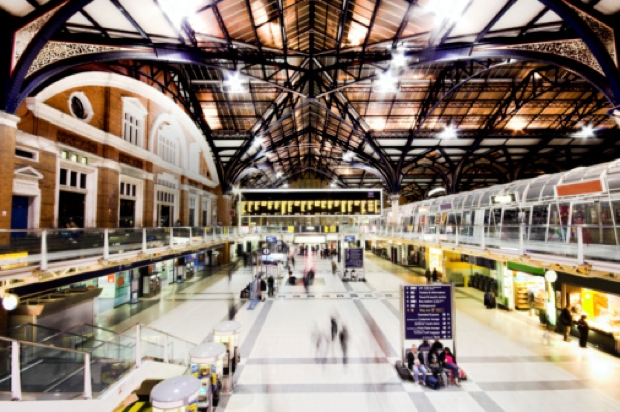I am still waiting for someone to refute my argument that it would be possible to reduce the journey time between London and Manchester or Birmingham for many rail passengers by between 20 and 40 minutes — and to improve effective capacity — at about 0.001 per cent of the cost of HS2. This would be done simply using software, not hardware.
Last Thursday I travelled to Manchester to give a talk in the afternoon. The journeys up and back were flawless. But they did take 40 minutes longer than necessary — in both directions. Why?
A month before, once I knew that I had to travel to Manchester, I did what every sane person would do. I booked an ‘Advance’ ticket there and back on specified trains. This means you can travel up and back in first class for about a quarter of the £400 it costs for a fully flexible return — and for less than it costs to buy an off-peak second-class return.
The risk is that if you miss your train, you have to pay the full price for a replacement ticket and all the money you have paid for the Advance ticket is forfeited. This prospect understandably frightens my inner Calvinist. So unless you live within walking distance, you need to set off insanely early in order to leave a large margin for error. I duly arrived 48 minutes before my train was due to leave. This meant two Virgin trains to Manchester left half-empty before I was allowed to board the 10.20 a.m. train I had booked. I spent the intervening time unproductively mooching around Euston.
Now, with a roomful of coders and £500,000 it would be perfectly possible to create a revised pricing system and a mobile phone app which would allow anyone to switch to an earlier train, capacity permitting. You would simply arrive, click a button marked ‘I’m here’ on your phone (or on a touch-screen terminal) and wait to be offered any available seat on an earlier departure. Perhaps you would pay £5 to £10 for the switch.
This would actually be good yield-management practice. You always want passengers to switch to an earlier train (or flight) if there is spare capacity, since seats are a perishable good: by occupying an earlier seat which is definitely empty, I free the train company to resell my later seat to someone else. Which is why easyJet already offers this option on its flights. (I don’t want to bore you with the intricacies of yield management but, as you have probably guessed, this argument does not apply in reverse. You should not allow people to switch easily to later trains.)
So with £500,000 spent on software, you have door-to-door journey times reduced by 20-40 minutes, wasted seat inventory reduced, less overcrowding on trains, not to mention the people of Buckinghamshire dancing in the streets. What’s not to like?
There is only one possible objection. By making Advance tickets more flexible and hence more attractive, you discourage people from buying full-fare tickets. This problem was identified in the 19th century by the French economist Jules Dupuit, who inferred that, although it would cost little to add a roof to third-class railway carriages, it was in the interests of railway companies to make third class disproportionately unpleasant in order to encourage all but the most destitute to pay the extra money for a second-class ticket.
I don’t know how much Virgin Trains would lose through this ‘revenue abstraction’ if they were to make the Advance ticket slightly more flexible than before. But I am sure that if you were to offer Richard Branson £1 billion and a new balloon he might be encouraged to overlook the problem.




